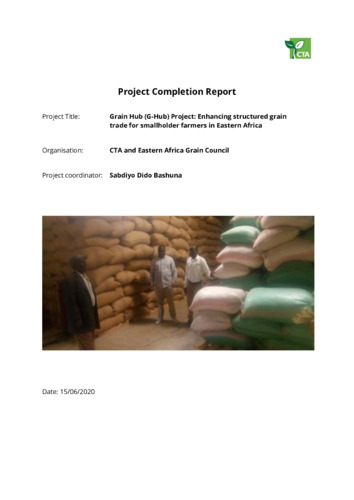CTA Project Completion Report: Grain Hub (G-Hub) Project
Abstract
Smallholder farmers are responsible for up to 90% of grain production in East Africa, but most of them face many challenges and are unable to reach the market and make a profit. They depend on their farms for income, but they often lack the skills and the knowledge to trade effectively and secure an income. The inputs they require (such as improved seeds and fertilisers) are expensive and are not always available. There are not enough facilities to store their produce; as such, most farmers are unable to wait for a better market price for their crops. In addition, traders and processors are not able to purchase grain from individual farmers as the volumes they produce are relatively small (showing limited possibilities for economies of scale).
In partnership with the Eastern African Grain Council (EAGC), CTA conceptualised the grain trade business hub (G-Hub) model and provided a grant of €400,000 to EAGC to implement a project in Kenya and Tanzania. The G-Hub was designed as a service delivery model aimed at solving some of the challenges that most smallholder farmers in the region face in terms of input and output markets and the need to reduce post-harvest losses. The G-Hub model offered several services, including digital registration and profiling of farmers, consolidation and collective purchase of inputs, leasing or hiring of equipment and machinery, grain aggregation and warehousing, provision of technical advisory services, and a strong link to financial services for credit and output markets.

